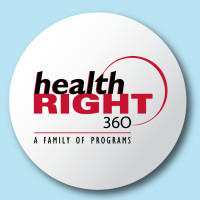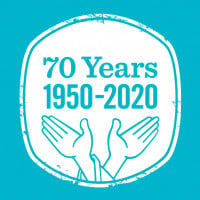Harm Reduction Therapy Center
Drug Rehab Center in San Francisco, California
Harm Reduction Therapy Center in San Francisco, CA is an accredited addiction treatment facility offering outpatient and dual diagnosis levels of care through detox, prioritizing the safety and wellbeing of their patients and providing a wide range of comprehensive addiction treatment services including therapy sessions, clinical assessments, regular check-ins with medical personnel, and specialized support for dual diagnosis patients.
About This California Facility
Harm Reduction Therapy Center, located in San Francisco, California, is a comprehensive mental health care and substance abuse treatment program for youth and adults. Founded on the principles of harm reduction, this outpatient facility takes a collaborative client-therapist approach to help individuals overcome addictions and treat co-occurring disorders. With a focus on community-based services and a mobile clinic, Harm Reduction Therapy Center brings care directly to those who need it most.
• Collaborative client-therapist approach: Therapists work closely with clients to develop personalized treatment plans.
• Community-based services: Harm Reduction Therapy Center brings care directly to the community through outreach programs.
• Mobile clinic: The facility offers a mobile clinic to provide accessible care to individuals who may have difficulty reaching traditional treatment centers.
• Comprehensive care: The center addresses both substance abuse and mental health concerns, providing a holistic approach to recovery.
Accredited by a State License and accepting private health insurance, Harm Reduction Therapy Center prioritizes the safety and well-being of all their patients. The facility offers a wide range of addiction treatments, including individual and group therapy sessions, clinical assessments, and regular check-ins with medical personnel to ensure clients receive comprehensive care throughout their journey to recovery.
Harm Reduction Therapy Center specializes in treating drug addiction, alcoholism, substance abuse, opioid addiction, and dual diagnosis. The facility offers outpatient care and tailored programs for dual diagnosis patients, providing psychotherapy and medical management from trained professionals who specialize in dual diagnosis support groups. With a commitment to exceeding national quality standards in the healthcare industry, Harm Reduction Therapy Center has been rated 96% on Inpatient Care Review Scorecards and has received the highest marks from The Joint Commission.
Genders
Ages
Modality
Additional
Accreditations
State License
Conditions and Issues Treated
Substance Abuse Treatment is important when getting sober, as it helps addicts learn the skills they need to live a clean life. There are many different kinds of recovery treatment, including medication-assisted therapy, behavioral therapeutic approaches and self-help groups, as well as counseling.
Opioid abuse has become a national epidemic in the last decade. The US has one of the world’s highest rates of opioid use and abuse, as well as opioid-related deaths. Opioids are classified as Schedule II-IV controlled substances in the US due to their high potential for abuse.
Oxycodone, hydrocodone, methadone, and fentanyl are the most common Opioids and are commonly prescribed to treat pain. Tolerance to opioids develops over time, making life difficult, if not impossible, without them. Opioid users often obtain the drugs illegally. They can be drug dealers, friends, or family members who do not have valid prescriptions.
The desire for a more intense high than prescription opioids can quickly lead to heroin use. Heroin users are more prone to illness and death due to the high risk of overdose.
Many opioid addicts who seek treatment believe that the only way to overcome their addiction is through medical detox and long-term drug addiction rehab. To help patients wean off their addiction and reduce the risk of overdose, medication-assisted therapy (MAT) involves prescribing a replacement opioid. Doctors use MAT in conjunction with other anti-craving medications to help patients maintain recovery. Due to the high risk of relapse, MAT is often combined with individual and group counseling and social support programs.
When addiction and psychiatric issues co-occur, the addict’s recovery is more successful when both conditions are treated. A dual diagnosis refers to a condition in which the patient is diagnosed with two health issues: addiction and bipolar disorder. The most common therapies are psychotherapy, behavioral therapy, spiritual counseling, 12-step programs, and medication management.
Levels of Care Offered at Harm Reduction Therapy Center
This center offers a variety of custom treatment tailored to individual recovery. Currently available are Detox, Dual-Diagnosis, Outpatient, with additional therapies available as listed below.
The detoxification process typically includes some combination of the following: medical supervision, medication to help alleviate withdrawal symptoms, drug testing to monitor progress, and counseling.
Tackling the physical symptoms of withdrawal is essential to ensure that an individual can focus on the psychological aspects of the addiction without focusing on the physical pain that comes with withdrawal.
Withdrawal symptoms can be uncomfortable, even life-threatening, so carefully managing the detox process is extremely important. In many cases, more advanced pharmaceutical interventions are used to treat more severe withdrawal symptoms. Medication might help alleviate discomfort associated with detox, including nausea and headaches.
An outpatient treatment program is set up to help with alcohol or drug addiction or a co-occurring disorder. The patient must attend the facility for their therapy and other programs but can return home each night.
The frequency of mandatory attendance decreases after much of Harm Reduction Therapy Center‘s program is complete.
Outpatient treatment is a recovery approach that allows recovering addicts to live at home while getting rehab for addiction
An outpatient can include day treatments which include attending group sessions one hour per week. A person living in an outpatient environment may be allowed the opportunity to work full time if they choose to and continue studies without interruption from drugs/alcohol.
Outpatient treatment is an option for people who want to maintain their careers and families. Outpatients live at home but attend treatment such as individual counseling, group counseling, or twelve-step meetings during the day.
Therapies & Programs
At Harm Reduction Therapy Center , to learn from past mistakes and improve one’s situation, the recovering person meets individually with a therapist. The counselor or therapist will address addiction causes, triggers, mental issues, dual diagnosis, and aftercare plans during this time. This is a very intense and challenging process. Some clients find it easier to open up to someone other than family or friends who understand their struggles with addiction.
Family therapy is a crucial part of drug treatment and getting sober. It is one of the most effective ways to help addicts stay on the path to long-term sobriety. An addict’s family can play a vital part in helping them to avoid relapse. They can spot the warning signs and help them get back on track.
In group therapy, recovering addicts meet with a therapist and other people in recovery. Some groups are closed, meaning only people who share the same addiction or problem can attend. Others are open to anyone who wants to stop using drugs or drinking alcohol. Group therapy sessions typically focus on one topic each week or month so that recovering addicts can discuss issues they face daily.
Trauma therapy allows people to face and learn from past traumas.
Many people suffer childhood traumas that lead to adult addiction. During treatment at Harm Reduction Therapy Center [/type], you can move forward in your recovery and reclaim your sober future! Trauma is a common cause of psychological disorders like Addiction Disorder. It’s common in Addictive Disorders patients because traumatized people have strong emotions or thoughts that lead to addictive behaviors.
The 12-step program is designed for people who suffer from addiction. It helps addicts to recover and live a normal life. This program is used in almost all substance abuse treatments. The 12 steps include:
- Admitting the problem.
- Focusing on the recovery process.
- Making amends with others.
- Believing in a higher power.
In this program, peers help each other to achieve the goal of abstinence. The founders of Alcoholics anonymous initially developed the 12-step program. According to its successful results, it is used as a part of other substance abuse treatments. The program provides cognitive restructuring to an individual to change negative thoughts, which leads to long-term benefits.
Payment Options Accepted
For specific insurance or payment methods please contact us.
Is your insurance accepted?
Ask an expert, call (888) 674-0062
Additional Details
Specifics, location, and helpful extra information.
San Francisco, California 94102 Phone Number(415) 863-4282 Meta DetailsUpdated April 15, 2024
Staff Verified
Patient Reviews
There are no reviews yet. Be the first one to write one.
San Francisco, California Addiction Information
More than 3 million of California's citizens are addicted to illegal drugs. Almost 800,000 people use hard drugs, almost 5 million use marijuana, and another 2.1 million abuse alcohol every year. Other substance abuse issues such as binge drinking and teen drug use are also common. Many illegal drugs such as cocaine, heroin, methamphetamine, and marijuana are smuggled into the state from Mexico.
There were 1,93 overdose deaths in San Francisco in 2016. This is a significant increase from the 1,11 overdose deaths reported in 2015. 16% of San Francisco residents aged 12 and older reported using an illicit drug. Drug abuse and addiction cost San Francisco an estimated $5 billion yearly. San Francisco's drug treatment facilities are designed to meet each patient's unique needs, providing the support and resources necessary for a successful recovery.
Treatment in Nearby Cities
- Irvine, CA (382.8 mi.)
- Tarzana, CA (331.3 mi.)
- North Hollywood, CA (335.7 mi.)
- Brawley, CA (510.7 mi.)
- Encino, CA (332.3 mi.)
Centers near Harm Reduction Therapy Center
The facility name, logo and brand are the property and registered trademarks of Harm Reduction Therapy Center, and are being used for identification and informational purposes only. Use of these names, logos and brands shall not imply endorsement. RehabNow.org is not affiliated with or sponsored by Harm Reduction Therapy Center.




